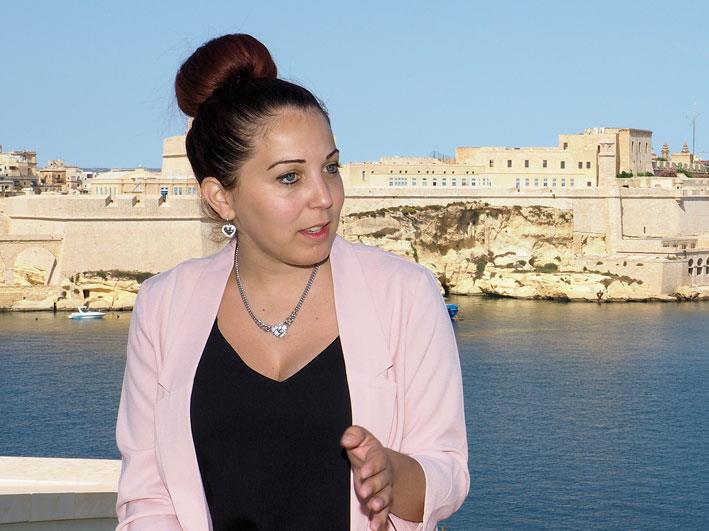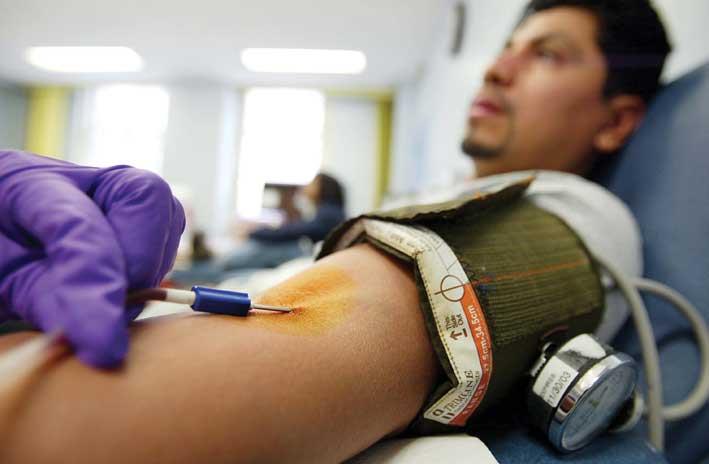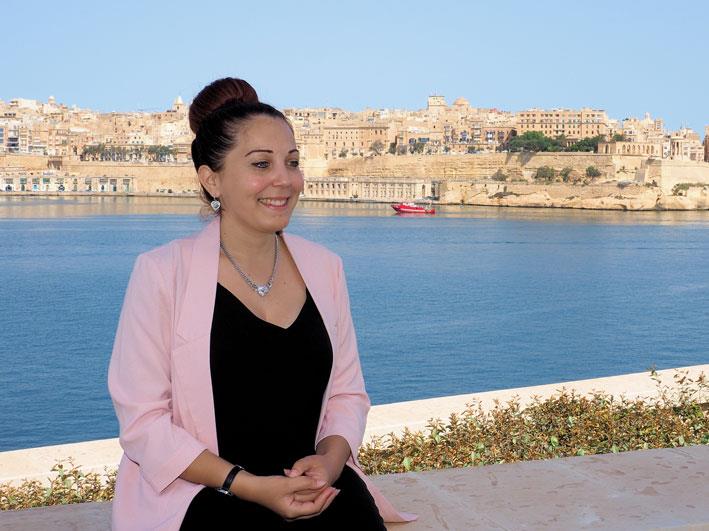From her first year of life, Claudine was diagnosed with Thalassemia Major, a rare genetic blood disorder prevalent in Mediterranean regions. There are approximately 30 known cases in the Maltese islands. Both her parents are carriers of this fatal condition, unbeknown to them until the doctor ordered routine bloods for the baby. From that day on Claudine required consistent blood therapy treatment, even to this day she requires 8-hour blood transfusions every 4-5 weeks with four bags of blood. Claudine is exceptionally elegant, bright, bubbly and articulate. She works full time, drives and holidays regularly with friends.
She lives by the mantra: “I will not let this condition condition my life”.
Nothing in her demeanour or ‘look’ gives away her condition as she sat down at Villa Bighi to explain what the importance of blood donating means to her.
“Basically, my red blood cells degenerate rapidly, and I need new replacement blood every few weeks,” Claudine explained.

Throughout her childhood, Claudine never saw herself as different to her peers until the teenage years began to take hold. At the same time Claudine requires frequent blood, too much iron build-up from blood transfusions also required her to have eight hours a day connected to a pump for iron chelation therapy throughout her childhood.
“At Muzew (religious doctrine classes), I began wearing a cross body bag, in fact I set off a trend with my peers there,” she joked.
“Though in all seriousness, there were times when I rebelled, when I would fight with my mother as I didn’t want the treatment.”
Claudine’s parents became her carers throughout her childhood, her father training to inject her daily and connect her butterfly syringe to the eight-hour daily pump therapy.
Claudine began to endure this treatment throughout the night in order not to affect her daily routine.
“I had to sleep almost upright to avoid disturbing the equipment, from those 8 hours I would perhaps get one hour of sleep, it would beep when it ended and then wake me up, after it was removed I could finally sleep on my front and feel a huge sense of relief.”

This daily therapy to counteract the iron build-up from the additional regular blood transfusions continued until Claudine was in her final year of University. It was then that a wonder drug was made available in Malta and Claudine could replace the 8 hours daily connected feed with a pill.
When asked how it affected her wellbeing, she described painful memories of knowing the drug existed elsewhere and the waiting game until it arrived in Malta. When the drug landed she had an adverse reaction which was a huge blow. “Doctors had to slowly introduce me to the drug and build up my tolerance.”
Now Claudine Is able to take the daily pill, but still must endure the 8 hour blood transfusions every few weeks at Mater Dei.
Claudine described the journey of becoming more responsible for her condition throughout the last 20 years, and how everything must be scheduled. If she wants to go abroad she is bound to plan trips around her blood transfusions or face complex health organizing in a foreign country. She described Sundays sat at Mater Dei marking exam papers and doing anything to keep the boredom at bay.
“My employers and colleagues are remarkable,” she added. “I believe it is very important that my team have awareness of my condition, and they support me wholeheartedly.”
Claudine is grateful that her condition has found herself pursuing a career in the sciences.

This week Esplora Interactive Science Centre is holding an event regarding the story of blood transfusion from donor to patient named “Bloody Late,” an event in which she has been very much involved.
“Before the event there will be the blood donation couches set up in Villa Bighi, which is the building of the Malta Council for Science and Technology,” she adds. Claudine stresses the importance of blood donation for various conditions in Malta as well as Thalassemia.
“Please if you have any questions preventing you from donating- speak to the blood bank team, do not let any stigma or misconceptions put you off. The team have the donor’s best interests at heart and not just the patients.”
Upcoming Blood Drives:
15-June-2018 Fri, Kalkara Villa Bighi, ESPLORA 2.00pm-6.00pm
17-June-2018 Sun, Attard Parish Church
18-June-2018 Mon, Floriana MEPA
If you have any further questions you can contact the National Blood Transfusion Service (356) 21234767 / 22066201 / 79307307 Freephone 80074313